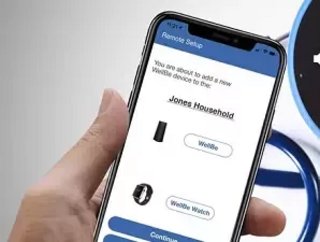How is Technology Impacting Home Healthcare?

Technology is advancing at an incredible pace, impacting consumers and organisations. The Healthcare industry is no exception when it comes to technological advancements.
With healthcare institutions and other facilities being hit hard during the outbreak of the pandemic, the importance of home healthcare treatments has rapidly increased.
In the current scenario, technology is becoming a crucial part of the home healthcare sector. The coming advancements and upgradation of in-home healthcare technologies will not only help in facilitating the role of home healthcare within the overall healthcare industry but will also help in fostering community-based independence.
With the advancement in healthcare technology, we are currently witnessing the era of healthcare digitalization, especially since the outbreak of the covid-19 virus. The pandemic acted as a catalyst that drove the evolution of the home and healthcare industry with technological advancements.
Today, home healthcare technologies are undergoing drastic changes led by the latest innovations. The technological advancements increased the capabilities of home healthcare professionals and improved the overall quality of home healthcare. It is revolutionizing home healthcare services.
How are different technologies are making an impact?
Technologies like active home telemonitoring devices help in capturing the vital signs, weight, symptoms etc and report them to concerned healthcare providers/home health agencies. Other telemonitoring technologies like bed sensors help in capturing restlessness, sleep interruptions, respirations, pulse rate etc during sleep. Wearable devices also help in detecting falls. It includes personal emergency response systems which allow the person to press a button to call for help if he/she falls accidentally.
Home healthcare agencies are harnessing the power of AI to automate their manual tasks such as observing, recording and reporting of data. Healthcare professionals can remotely monitor the vital signs of the patient as real-time data is being transmitted with the help of devices allowing a more timely response and intervention whenever required.
Innovative wearable technology is providing constant assurance to patients that an expert is watching over them and tracking their vitals towards a healthy lifestyle. These connectable devices also reduce the cost and the time consumed while visiting a healthcare facility.
Remote patient monitoring allows the caregivers, healthcare professionals, patients and their families to keep a check on their healthcare needs and track blood pressure levels, glucose levels, heart rate measurements etc. This would help in eliminating risks as well as regular visits to the healthcare facility.
Virtual technology is also making space for itself in the healthcare industry. It is helping both patients and healthcare professionals. It is being used for training healthcare professionals in a more realistic and low-risk environment.
An increase in the use of connected devices allows the flow of data between the healthcare professionals, patients, caretakers etc and provides them with detailed reports. Digitalization will give the caregivers and healthcare professionals increased bandwidth to focus on patients rather than spending time on other manual processes.
AI Technology Impacts on Healthcare
Technology like healthcare bot uses an AI development service for healthcare which brings together medical content from different trusted sources which include details on conditions, symptoms, medications, procedures etc. These advanced technologies are increasing access to improved healthcare services and reducing the cost of treatment. The home healthcare industry recently started implementing artificial intelligence (AI) solutions at its disposal. AI is different from other technologies in terms of its ability to teach itself from the data. It develops its own rules and responses once it is trained by the existing data.
Introducing these advanced technological innovations in the healthcare industry is reducing the room for mistakes as a lot of work processes are being automated and done digitally, eliminating the scope of human error. Furthermore, these digital processes and systems help caregivers and healthcare professionals with remote access to patients’ records and other important information.
Conclusion:
Technology when combined with traditional healthcare work processes, enables the healthcare institutions to reduce their overall costs and improve the quality of their services in the long run.
The consequences of these technological developments for patients and healthcare professionals depend on how these technologies are put to use while addressing the concerns of the healthcare industry. Home healthcare is transforming the healthcare ecosystem in the current circumstances but to leverage it to its full potential, healthcare institutions need to partner with the right custom healthcare software development companies which would be able to provide them with the right tech solution depending on their requirements.
With the right partner on board, technological advancements can be utilized in an effective manner to cater to the needs of patients, their families, healthcare professionals and healthcare institutions. It is important for healthcare institutions to understand that the right technology partner is very important for them as these solutions are customized according to the requirements of the facility and one needs to be on a common page to have a clear understanding of the requirements along with following all the obligations of the healthcare industry’s rules and regulations.
- Top 100 Women 2024: Robyn Denholm, Tesla - No. 8AI & Machine Learning
- Top 100 Women 2024: Safra Catz, Oracle - No. 7Digital Transformation
- Advancing AI in Retail with Pick N Pay's Leon Van NiekerkAI & Machine Learning
- OpenText’s Muhi Majzoub: Engineering Platform Growth with AIEnterprise IT






